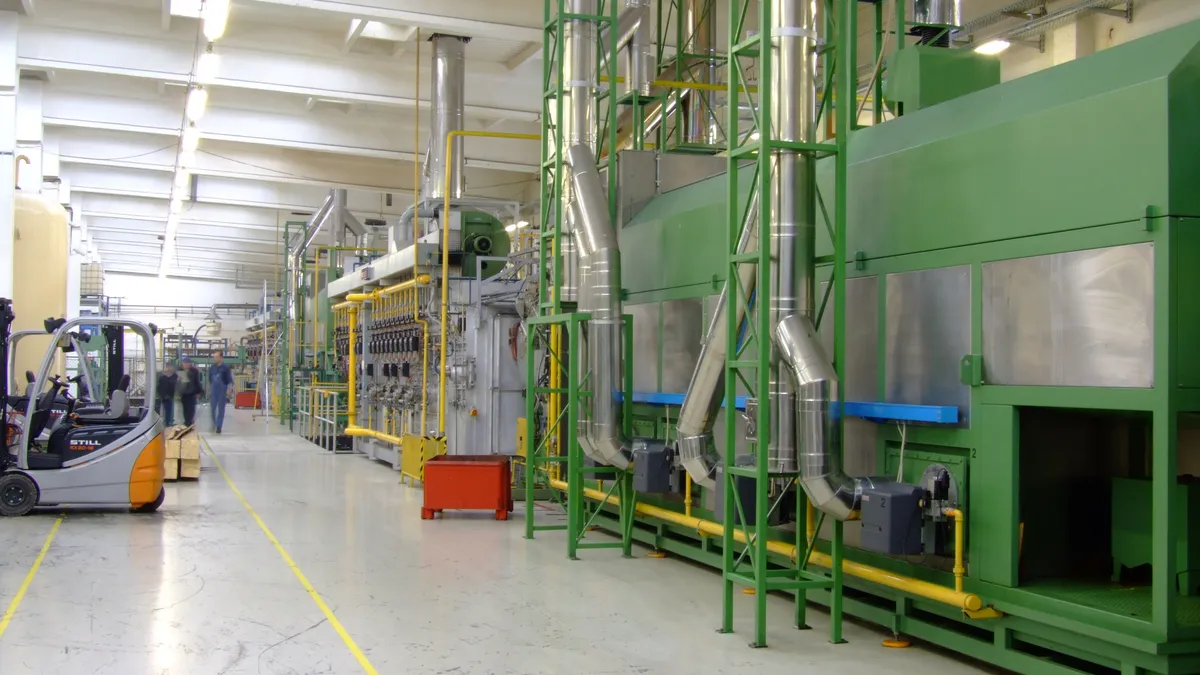Dive Brief:
- Supplier deliveries continued to slow in December and at an increased rate, according to the latest figures from the Institute for Supply Management's manufacturing report. The ISM Supplier Deliveries Index was at 67.6 in December, up from 61.7 in November. Readings above 50 indicate slowing deliveries.
- The deliveries struggled due to issues surrounding transportation, labor availability and uncertainty about the future holding back increased investments, according to ISM Manufacturing Business Survey Committee Chair Timothy Fiore said.
- "COVID-19 outbreaks are causing supply chain issues for Tier-1 and Tier-2 suppliers," an ISM panelist company in the transportation equipment space is quoted as saying in the monthly report. "More work needs to ensure suppliers keep us in the loop with any problem in their supply chain. But end-customer demand for products is keeping production and future outlook positive."
Dive Insight:
The overall PMI grew 3.2 points to reach 60.7 in December, which made it was the seventh straight month of growth for the manufacturing sector. But ISM reported transportation issues are one of the factors constraining production growth.
"When you plan on shipping a truckload of equipment or parts to your customer once a week, and you only have half a truckload at the end of the week ... you have to ship that half a truckload — which means you end up shipping two truckloads when you should have shipped one," Fiore said.
The main issue, according to Fiore, is the manufacturing sector's ability to attract and retain workers as the coronavirus pandemic continues to disrupt daily life across the country.
"COVID-19 is affecting us more strongly now than back in March," a company in the food and beverage space said in the monthly survey. "Vendors/service suppliers unable to maintain levels of service due to employee shortages." Another company said suppliers' challenges finding and retaining labor led to supply constraints.
The roll-out of the vaccines does provide some optimism to resolve labor shortages, Fiore said. And the election results from the run-off in Georgia provide some clarity for the manufacturing sector moving forward — even if it's not the result the industry wanted.
"I think the business community would rather see a split Congress," Fiore said before the election was finalized. Two wins for Democrats in Georgia mean the Democrats will control both chambers of Congress.
Wednesday the nation watched as a mob of Trump supporters stormed that Congress, which was meeting to count electoral votes. The manufacturing industry spoke out against the scene with National Association of Manufacturers CEO Jay Timmons calling those gathered at the Capitol "armed thugs" and called on Vice President Mike Pence to invoke the 25th Amendment to remove President Donald Trump from office.
"This is sedition and should be treated as such," Timmons said. "The outgoing president incited violence in an attempt to retain power, and any elected leader defending him is violating their oath to the Constitution and rejecting democracy in favor of anarchy."














